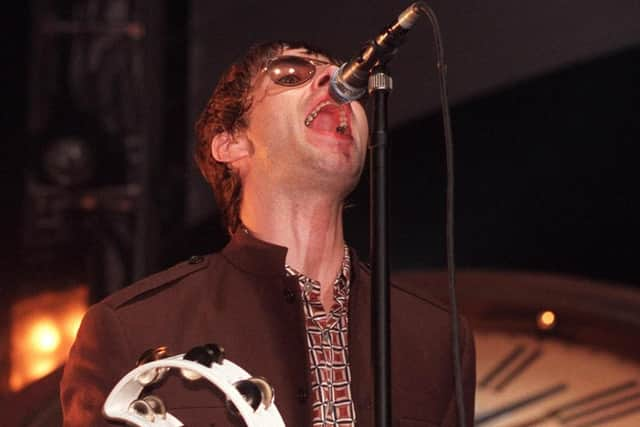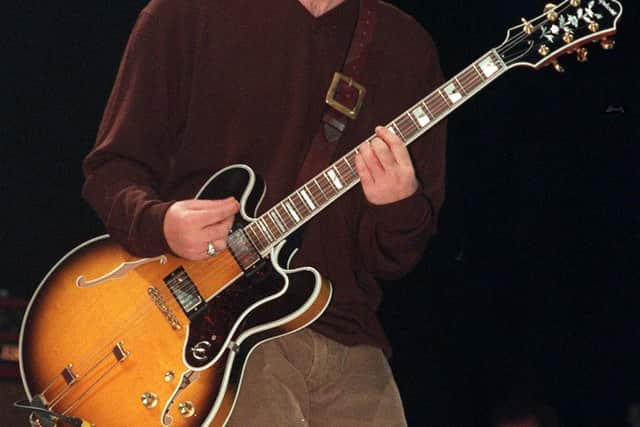What's The Story (Morning Glory) is 25 – Watch the video of Oasis playing Don’t Look Back in Anger for first time at Sheffield Arena
and live on Freeview channel 276
Viewed by fans and music industry figures alike as the moment the Manchester band ascended to rock's upper tier, the gig – which had Sheffield's Pulp as the support act in a last-minute booking – also made history for being the first time one of the group’s most classic and recognisable songs was ever heard, just days after Noel Gallagher wrote it.
After the first 12 songs of the set, the band left the stage bar Noel, who stayed with only an acoustic guitar, a microphone, and a stool. After playing b-side ‘Take Me Away’, Noel told the 12,000-strong crowd: “I’m gonna play a brand new one - I only wrote it on Tuesday! No one’s heard this before. I haven’t got a title for it yet either.”
Advertisement
Hide AdAdvertisement
Hide AdMonths later the song - which turned out to be Don’t Look Back in Anger - would find its way onto Oasis’ second album What’s the Story? (Morning Glory) and was released as a single in early 1996, going straight to number one in the charts and selling just under a million copies at the height of Britpop.
It became even more of an anthem in 2017 when it was adopted as an expression of hope following the Manchester Arena bombing in May of that year. The terrorist attack happened following a concert by Ariana Grande at the venue – weeks later Grande herself sang the song with Coldplay’s Chris Martin and Jonny Buckland at the One Love Manchester benefit concert.
The Sheffield Arena show of 1995 was also notable for being the last Oasis gig with original drummer Tony McCarroll. He left not long after to be replaced by Alan White.
Towards the end of 1995 the band played more arena shows at Earls Court in London. In 1996 they headlined at Maine Road – Manchester City’s old ground – followed by two enormous concerts to a total of 250,000 people at Knebworth.


Advertisement
Hide AdAdvertisement
Hide AdOasis split acrimoniously in 2009 having released seven studio albums, scoring eight number one singles, and selling a total of 70 million records worldwide.
During their career, the band played in Sheffield nine times.
A message from the Editor:
Thank you for reading this story on our website. While I have your attention, I also have an important request to make of you.

